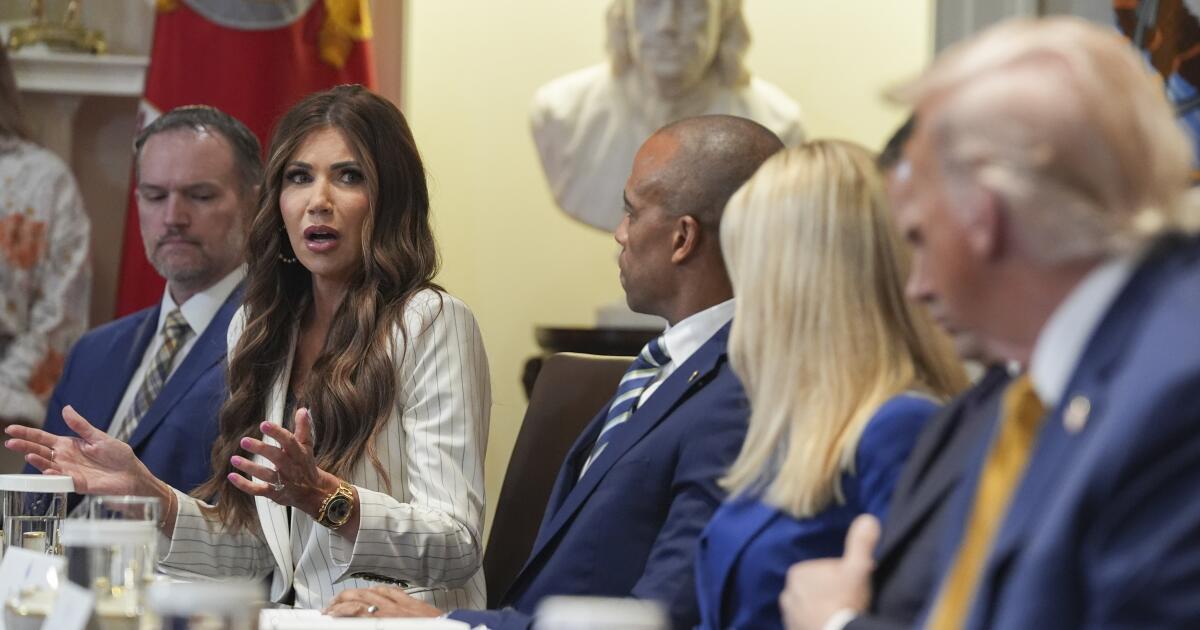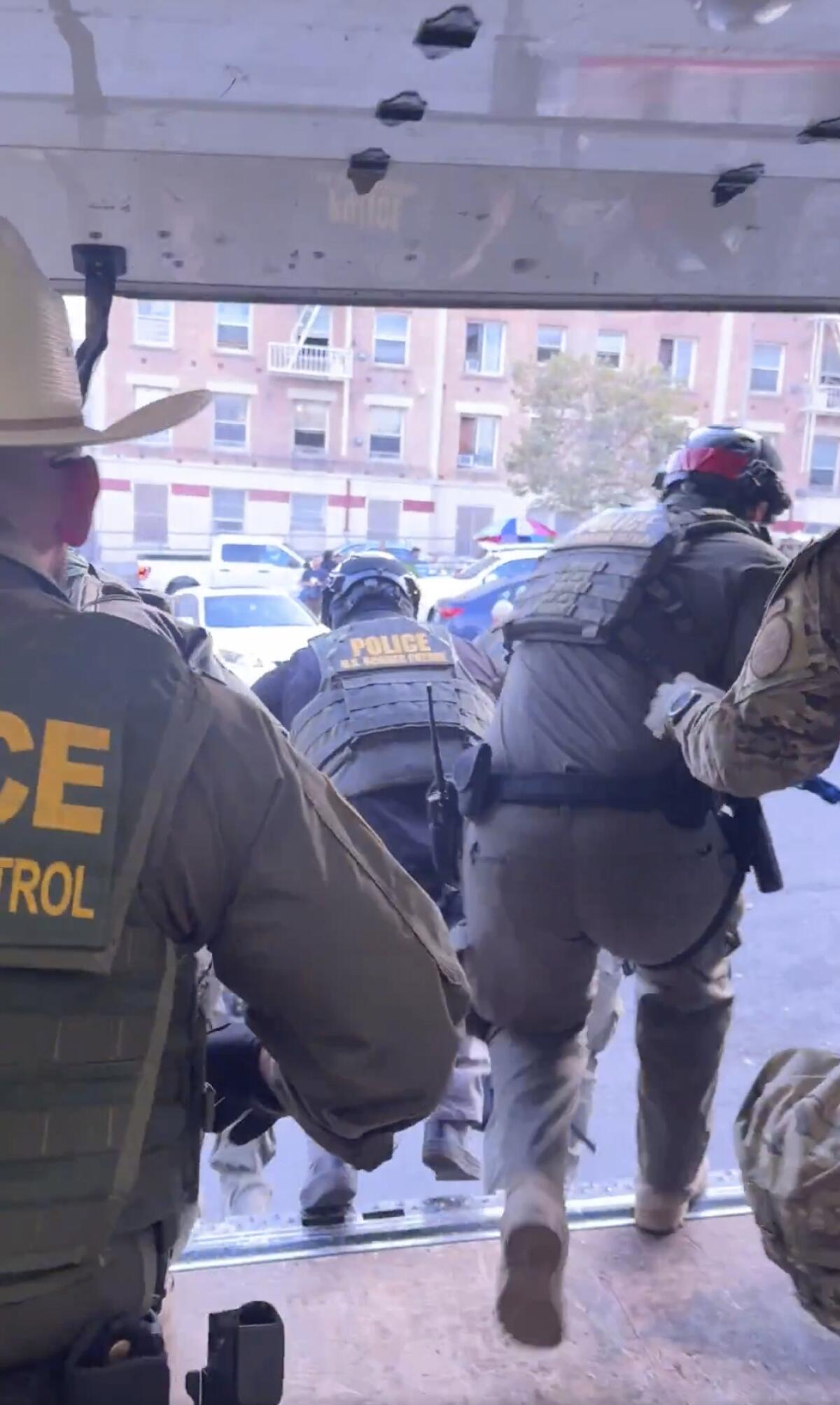Supreme Court says again Trump may cancel temporary protections for Venezuelans granted under Biden
WASHINGTON — The Supreme Court has ruled for a second time that the Trump administration may cancel the “temporary protected status” given to about 600,000 Venezuelans under the Biden administration.
The move, advocates for the Venezuelans said, means thousands of lawfully present individuals could lose their jobs, be detained in immigration facilities and deported to a country that the U.S. government considers unsafe to visit.
The high court granted an emergency appeal from Trump’s lawyers and set aside decisions of U.S. District Judge Edward Chen in San Francisco and the 9th Circuit Court of Appeals.
“Although the posture of the case has changed, the parties’ legal arguments and relative harms generally have not. The same result that we reached in May is appropriate here,” the court said in an unsigned order Friday.
Justices Elena Kagan and Sonia Sotomayor said they would have denied the appeal.
Justice Ketanji Brown Jackson dissented. “I view today’s decision as yet another grave misuse of our emergency docket,” she wrote. “Because, respectfully, I cannot abide our repeated, gratuitous, and harmful interference with cases pending in the lower courts while lives hang in the balance, I dissent.”
Last month, a three-judge panel of the 9th Circuit Court said Homeland Security Secretary Kristi Noem had overstepped her legal authority by canceling the legal protection.
Her decision “threw the future of these Venezuelan citizens into disarray and exposed them to substantial risk of wrongful removal, separation from their families and loss of employment,” the panel wrote.
But Trump’s lawyers said the law bars judges from reviewing these decisions by U.S. immigration officials.
Homeland Security applauded the Supreme Court’s action. “Temporary Protected Status was always supposed to be just that: Temporary,” Assistant Secretary Tricia McLaughlin said in a statement. “Yet, previous administrations abused, exploited, and mangled TPS into a de facto amnesty program.”
Congress authorized this protected status for people who are already in the United States but cannot return home because their native countries are not safe.
The Biden administration offered the protections to Venezuelans because of the political and economic collapse brought about by the authoritarian regime of Nicolás Maduro.
Alejandro Mayorkas, the Homeland Security secretary under Biden, granted the protected status to groups of Venezuelans in 2021 and 2023, totaling about 607,000 people.
Mayorkas extended it again in January, three days before Trump was sworn in. That same month, Noem decided to reverse the extension, which was set to expire for both groups of Venezuelans in October 2026.
Shortly afterward, Noem announced the termination of protections for the 2023 group by April.
In March, Chen issued an order temporarily pausing Noem’s repeal, which the Supreme Court set aside in May with only Jackson in dissent.
The San Francisco judge then held a hearing on the issue and concluded Noem’s repeal violated the Administrative Procedure Act because it was arbitrary and and not justified.
He said his earlier order imposing a temporary pause did not prevent him from ruling on the legality of the repeal, and the 9th Circuit agreed.
The approximately 350,000 Venezuelans who had TPS through the 2023 designation saw their legal status restored. Many reapplied for work authorization, said Ahilan Arulanantham, co-director of the Center for Immigration Law and Policy at UCLA School of Law, and a counsel for the plaintiffs.
In the meantime, Noem announced the cancellation of the 2021 designation, effective Nov. 7.
Trump’s solicitor general, D. John Sauer, went back to the Supreme Court in September and urged the justices to set aside the second order from Chen.
“This case is familiar to the Court and involves the increasingly familiar and untenable phenomenon of lower courts disregarding this Court’s orders on the emergency docket,” he said.
The Supreme Court’s decision once again reverses the legal status of the 2023 group and cements the end of legal protections for the 2021 group next month.
In a further complication, the Supreme Court’s previous decision said that anyone who had already received documents verifying their TPS status or employment authorization through next year is entitled to keep it.
That, Arulanantham said, “creates another totally bizarre situation, where there are some people who will have TPS through October 2026 as they’re supposed to because the Supreme Court says if you already got a document it can’t be canceled. Which to me just underscores how arbitrary and irrational the whole situation is.”
Advocates for the Venezuelans said the Trump administration has failed to show that their presence in the U.S. is an emergency requiring immediate court relief.
In a brief filed Monday, attorneys for the National TPS Alliance argued the Supreme Court should deny the Trump administration’s request because Homeland Security officials acted outside the scope of their authority by revoking the TPS protections early.
“Stripping the lawful immigration status of 600,000 people on 60 days’ notice is unprecedented,” Jessica Bansal, an attorney representing the Los Angeles-based National Day Laborer Organizing Network, wrote in a statement. “Doing it after promising an additional 18 months protection is illegal.”

